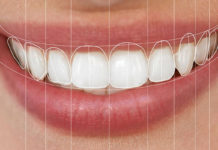
In graduate school a professor lectured on something he called disruptive technology. In a nutshell, his point was that periodically a technology comes along that destabilizes or fundamentally changes some aspect of a business model. Like many of my fellow students, I remembered the lecture long enough to pass the class then forgot about it—until that knowledge came crashing back in one of those “this will change everything” moments.
By now everyone has heard the term “smartphone.” Apple’s iPhone is perhaps the most widely recognized embodiment of this device. I’ve had a smartphone in one form or another for well over four years. For the most part I’ve used it to make calls, check email, and occasionally search the web for movie times or addresses.
In the past 12 months, however, my smartphone has gone from just being a handy gadget to being an influential mobile advisor. “Apps” (applications) are changing the fundamentals of many well-established business models, dentistry included.
Crucial reviews are just a click away
The life-changing moment mentioned earlier involved my smartphone and my dentist. I had scheduled an appointment, and I put the information in my smartphone calendar. A few days later, I downloaded an app designed to go through my calendar and download related information from the Internet. Not only did the app find my dental appointment, it pulled several recent reviews on my dentist. It even noted a different dental practice that had just opened up in the area.
Two reviews indicated that the practice’s new hygienist was not as gentle as one would hope. Being an amateur social scientist, I thought I would see just how reliable the reviews were. As I lay in the dental chair with what felt like piano wire being jerked between my teeth, I realized smartphones could easily disrupt the long-standing business model upon which dentistry has operated for so many years.
Smartphones give patients unlimited access
In the past a dentist would graduate from school, start or buy a practice, get a yellow pages ad, build a patient base and then attract new patients from referrals and direct marketing. As the practice grew the office would get nicer and the number of staff would increase. Patients would find a dentist by asking a friend, calling a referral service like 1-800-DENTIST, or using the yellow pages. Once a patient selected a dentist, he or she would usually stay pretty loyal.
Enter the smartphone. In virtually every patient’s pocket is a world of information that patients didn’t have access to in the past. With websites and apps like ZocDoc, Yelp, and others, I’m able to quickly find a dentist, see what patients are saying about him or her, determine what insurance they take, schedule an appointment, and frequently get an idea of fees.
Thanks to services like Google Health, I now have instant and secure access to my medical and dental records on my smartphone. I can share access with any provider I choose at the time of service. That means the next time I call my dentist with a broken filling and the receptionist says he can see me next week, I can find another dentist who can see me now, secure in the knowledge that he will have full access to my dental records.
Also, those longer-than-expected stays in the waiting room reading old magazines were once an accepted part of going to the dentist. Today, having a waiting room full of patients with smartphones could be a recipe for disaster. Long waits provide ample time for patients to complain online about delays, or—worse—look for alternatives. More importantly those digital diatribes become information that other smartphones will find and present to existing and potential patients.
The veil of marketing is suddenly tranparent
Is the smartphone just another technology headache for dental practices to adapt to, or is it a great opportunity? To be sure, the smartphone is making the veil of marketing employed by many dentists more transparent. Smartphones offer patients what I like to call “aggregate truth”: information from a number of sources with firsthand knowledge and no perceived ulterior motive in sharing the information.
Thanks to the immediacy of smartphones, patients will now read other patients’ reviews long before they will see the polished messages in your brochures or website. In many respects the information these devices find and present will form the bias that these patients will have when or if they walk into the dental office.
To the outcome-oriented practice, I would confidently say that the advent of the smartphone can be an advantage of epic proportions. It has always been hard for a patient to find a really good dentist. In a similar fashion, it has always been difficult for top-tier dentists to differentiate themselves from the crowd.
A quick example, if I may. Almost every dentist advertises an ability to do cosmetics. A relatively small proportion of dentists have invested the time and money needed to deliver the outcomes now possible with modern materials, techniques and technologies. These outcome- oriented practices will have a compelling voice on every smartphone telling potential patients where they can get dentistry that transcends fee-based patchwork.
Make the dental experience you provide one patients will want to share with others.
The trick will be to make the dental experience you provide one that patients will want to share with others. It must be one that is above and beyond the standard level of commodity care that is all too prevalent. You will need to make your dental practice a destination that smartphones direct patients to using the “aggregate truth” of past patients.
Start by reinforcing your staff to be always inviting, caring and communicative. Offer the patient a vision of what is possible, and take that journey with them. Pursue the advanced skills and technologies required to offer the cutting-edge dentistry that patients want.
Do this and you will have legions of loyal patients advertising for you in ways that no marketing campaign can ever approximate. If you decide to become an outcome-oriented practice, I can give no higher recommendation than the courses and mentorship offered by the Dr. Dick Barnes Group.
I know one thing for sure: smartphones will continue to grow in popularity. The children with technology at their fingertips today will evolve into adults with the world at their fingertips. They will continue to make decisions based on the information they receive. Make sure they find a compelling reason to choose you.









